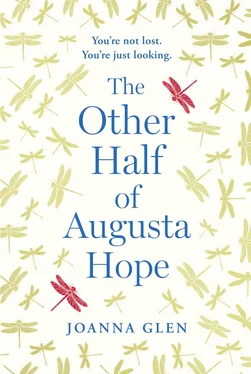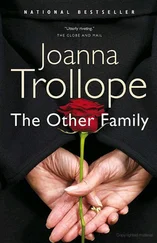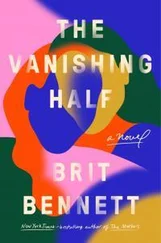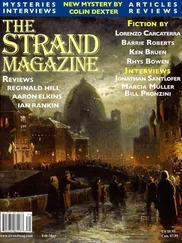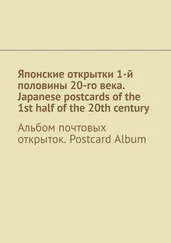1 ...7 8 9 11 12 13 ...16 ‘Who got the money last year?’ I said to my mother. ‘Didn’t it go to Graham Cook’s school?’
Now Julia took my hand in hers, which meant shut up.
‘I’m not sure,’ said my mother. ‘I’m not the treasurer. The treasurer is Janice Brown.’
Julia looked at my mother and then at me and then at my mother, and I knew that my mother had lied to my father to get him to agree to hold the Craft Fair in our garden.
‘Perhaps we could give a percentage this year,’ said Janice Brown, blushing, and also glowering at me when she thought my mother wasn’t looking – and thus not loving her neighbour at all, like it said on the white plastic sacks in which she collected our old clothes to send on to African children.
After that burst of noise, there was an even bigger silence, and into that silence came the noise of the train. We let the train blast into our silence. We were quite used to it. We didn’t know that Barbara Cook had gone for a walk to compose herself. We didn’t know that she’d got stuck the other side of what everyone in Hedley Green called, with a sigh, the crossing .
Hedley Green Level Crossing was always in the news – it caused people to give birth to babies in their cars and miss their A level exams, and it was a temptation to school boys, people said, and there were always bunches of dead roses tied to the fence where a boy called Fatty Jenkins had died playing with his friends at the crossing. Except, once he was dead, you were supposed to call him Frank Jenkins, or even Francis, which was the name he was christened.
His mother had a plaque nailed to the gate, and she would often be seen there, polishing it and watching the trains go by and staring about the place as if there was some small chance that Fatty Jenkins might come walking out of the long grass, after a very long game of hide-and-seek.
Francis Jenkins, 1980–1992, who died at the crossing and is now with the angels.
To me, sitting on the colline , trying to think of a way to change our future, the crossing meant the little stretch of water between Africa and Europe.
It meant peace and hope and the chance of a new life.
The train passed and the crossing gates came up – and Barbara Cook marched back through the door, her face set, her skirt done up, and she said that she was resigning. My mother said that of course she wasn’t, and they’d all agreed that Graham Cook was most welcome at the Craft Fair, and they went on having their committee meeting as if nothing at all had happened.
This time, I’d asked to be in charge of second-hand books. Amongst the tatty Enid Blyton paperbacks, I found an old leather book of Victorian children’s poems and rhymes, published in 1900, illustrated with beautiful watercolour plates, and I took this without asking my mother, and I put it under my mattress without telling anyone, even Julia.
I knew deep down that this was stealing.
But I wanted this book so badly.
Inside it were all the normal nursery rhymes that Julia and I knew off by heart and used to say so fast that the words blurred into each other when we were younger. ‘Humpty Dumpty’, ‘Little Bo Peep’, and ‘Mary, Mary, Quite Contrary’, which was another of my mother’s nicknames for me and drove me absolutely mad.
My favourite poem was called ‘The Pedlar’s Caravan’ by William Brighty Rands. The illustration showed trees and birds and caterpillars – and a Victorian caravan, made of wooden slats, yellow and red, with flowers painted in vertical plaited lines to the right and left at the front, and butterflies fluttering above them. It had tiny windows with geraniums in boxes, and ladder steps, and wooden wheels with cream-coloured spokes, and a smoking tin chimney, and it was passing under a huge tree, with a dark-looking woman and child at the window, and the pedlar man leading a dapple-grey horse to a dusky not quite see-able horizon.
When I was alone, I read it and I read it, and it made my heart beat and my soul soar, and I heard the noise of singing coming from deep down inside me, where he comes from nobody knows, and I was in the caravan, or where he goes to, but on he goes, and I was leading the dapple-grey horse, and my horizon was unknowable, and every time I climbed the ladder, I gave my own life story a different ending. And I never once ended up in Hedley Green.
Perhaps the reason I didn’t show Julia the book was that I couldn’t bear to admit to her that I wanted to leave.
Go anywhere but where I was.
The minute I could.
Of course, I knew that she would want to stay.
And, if I left and she stayed, we wouldn’t be Justa any more.
We’d be ripped apart like the ragdoll, with our stuffing falling out.
The stuffing was falling out of my mother.
When Douce came running out of the hut, shrieking, I knew.
I wasn’t brave enough to face what I knew.
Not again.
So I ran up to Víctor’s house, and we zoomed back down the hillside, with me on the back of his bike, my long legs sticking out either side. As I looked at Víctor’s strong back in front of me, his prominent shoulder blades, his thick white-skinned neck and his mop of grey hair, I felt that perhaps this time, this time, it was all going to be OK.
But by the time we got into the hut, the feeling started to dissolve. Because Gloria and Douce and Wilfred and Zion were all sitting in a semi-circle, and in front of them was my mother. It was, in some ways, my mother, but she looked like an empty sack.
Breathe, I thought, breathe in, breathe out, breathe in, breathe out.
I remembered the feel of her skin on my cheek.
The softness of her.
Zion got up.
‘She’ll be with Pa,’ he said, clenching his fingers, then stretching them out. ‘Isn’t that a good thing, that she’ll be with Pa? That they’ll be together.’
‘That’s right,’ I said, and I wiped away my own tears as fast as they fell because I was the oldest and I had to be brave.
‘Yes, Little Bro,’ I said, trying to find a smile from somewhere, ‘she’ll be right there where there’s a huge river, and trees with fruit every month – do you remember? – and leaves for the healing of the nations.’
‘Leaves don’t heal nations,’ said Pierre, coming in through the open door. ‘Leaves don’t do anything.’
‘Except photosynthesis,’ said Zion.
Zion remembered everything I taught him. He listened to me like I’d listened to my father, and this steadied me. He loved me much more than the others did, and this gave me purpose. If he was beside me, it was worth going on.
‘Yes, Zion,’ said Víctor. ‘Your mother’s crossed over to the eternal city.’
‘Like my name!’ said Zion.
‘Like your name!’ said Víctor. ‘And she’ll be dancing down its golden streets with your father.’
‘What do you think it was?’ Pierre said to Víctor, crossly, sounding as if he couldn’t stand hearing another thing about the golden streets. ‘The thing that killed her?’
‘It could have been cholera,’ said Víctor.
‘Could the doctor have saved her?’ I asked Víctor.
Víctor put his arm around my shoulder.
Pierre said, ‘Well, could he?’ in that voice he had that made me feel as if everything that happened in our lives was my fault.
‘Oh, cholera’s a tricky one,’ said Víctor.
Then, he dug a hole, and each one of us in turn thanked God for our little bird mother, Aurore, whose name meant dawn. We gathered around the hole where she lay, and as Víctor filled it up with red earth, he led us in singing, Freedom is coming, freedom is coming, freedom is coming, oh yes I know!
Читать дальше
